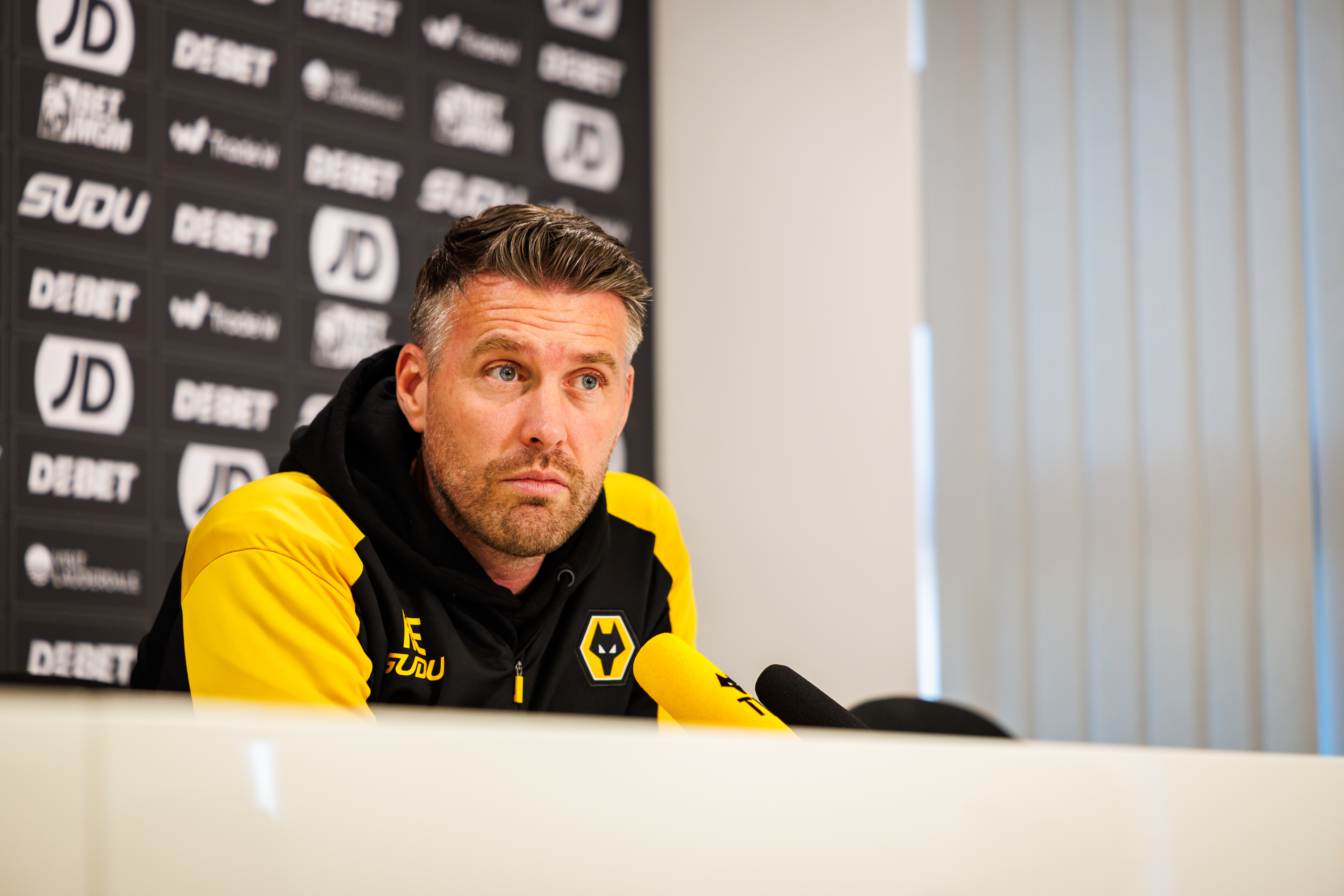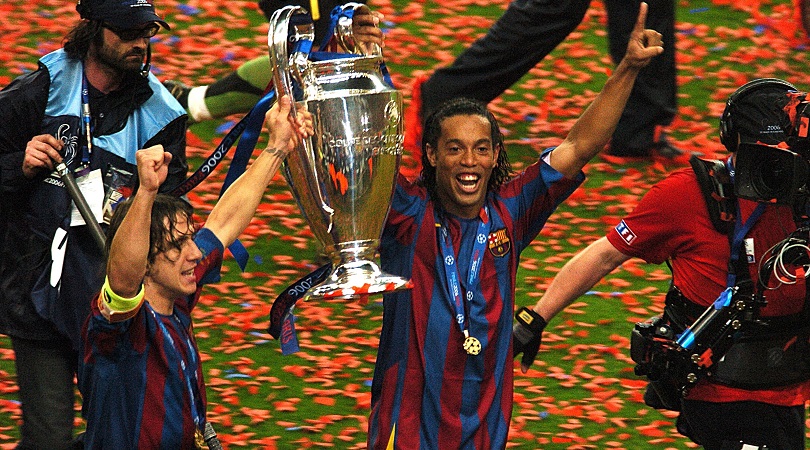
Premier League wishes
The Premier League may be the most popular domestic competition in the world, but it remains the case that the very best players tend to congregate in La Liga at Barcelona or Real Madrid. Others ply their trade in the Bundesliga, Ligue 1 or Serie A, denying English audiences the chance to witness their talent up close and personal.
In this slideshow, we pick out 50 players we wish had played in the Premier League...
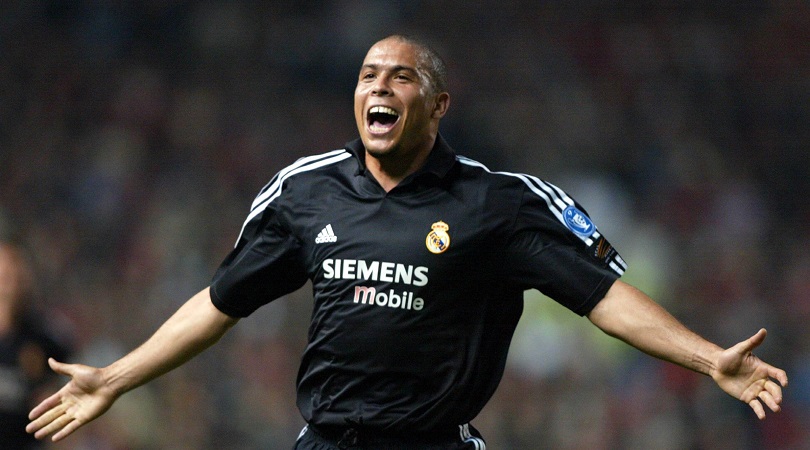
Ronaldo
Ronaldo was a force of nature and, while the clips of such moments perhaps haven't aged quite as well as anticipated, there were times – especially during that one, glorious season at Barcelona – when he seemed to be playing the game in a way which had never been seen before.
Alan Shearer, Thierry Henry, Ruud van Nistelrooy... no Premier League forward has ever compared to the Brazilian No.9. What could he have done to English football? The answer, most likely, is that he would have burned it to the ground.
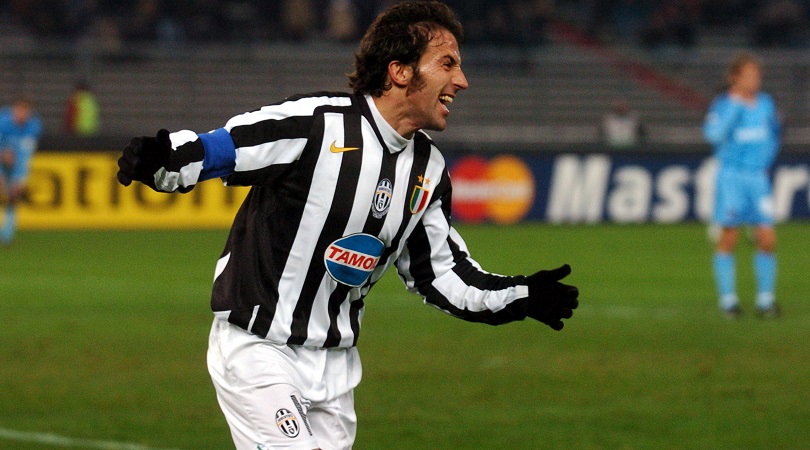
Alessandro Del Piero
The crown prince of 1990s Italian football. He was never going anywhere and there never seemed the slightest possibility of him leaving Juventus – even after the Calciopoli sanctions were handed down, he famously remained as the club climbed out of Serie B.
There was certainly a before and after point in his career, separated by the knee injury sustained in 1998. That never really dimmed his appeal, though, because we lusted after the aesthetic he represented as much as anything else. Del Piero was a big bundle of ball-striking, free-kick-bending, artisan craft and his appeal was probably more physical than sporting.
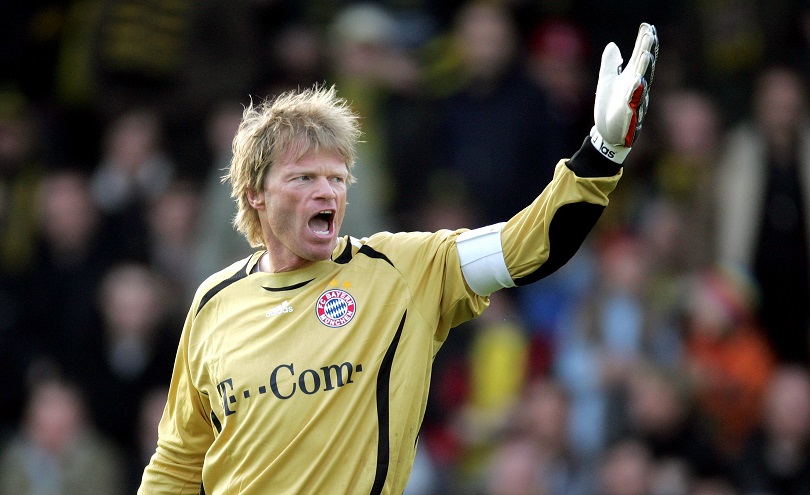
Oliver Kahn
Has there been a European goalkeeper more suited to the Premier League in the last 20 years? Imposing, barrel-chested and a lover of the limelight; not only would he have suited – and thrived within – the sporting landscape, he would likely also have taken naturally to the burgeoning celebrity culture.
Goalkeepers are prone to bending under the weight of scrutiny, but Kahn invited it. Actually, he craved that attention and fed off it; it may be a dislikeable trait, but it was a precious attribute in a big-club custodian.
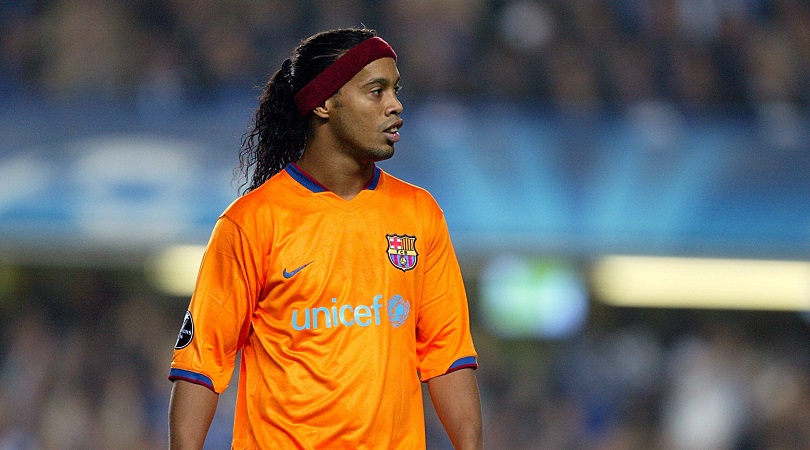
Ronaldinho
Ronaldinho was the quintessential big-game player and so his best moments typically occurred on the biggest stages: the whole world was watching when he shimmied across Milan's box and leathered the ball into Dida's top corner and, likewise, the games he routinely lit up were beamed live to hundreds of different countries.
The intrigue lies in how he might have adjusted to the Premier League. He would almost certainly have been brilliant, but would his appetite for the game have been eroded by the physical attention he would almost certainly have received?
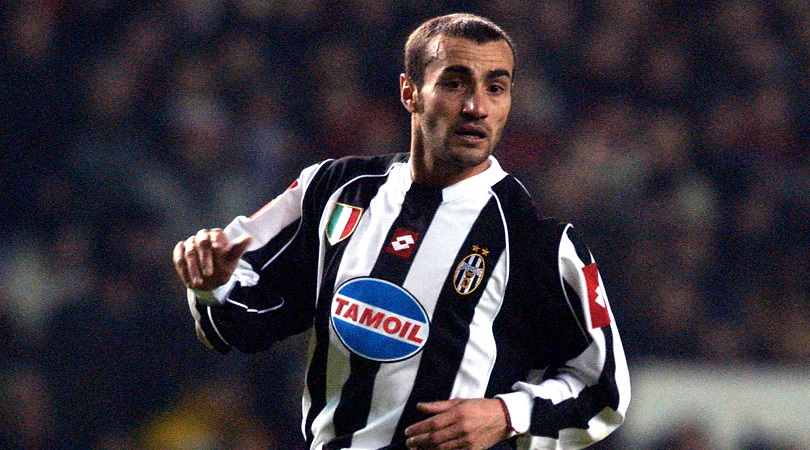
Paolo Montero
People only remember the Uruguayan's bad side. Not unreasonably, because a record 16 red cards in Serie A during stints with Atalanta and Juventus attests to just how much "bad" there was and, equally, a quick Google of some of his Copa America "highlights" will make your eyes water.
Nevertheless, Montero was so honest about the way he played that there was almost a heroism to his aggression. He certainly took liberties on the pitch, but it's difficult not to admire his 'ends justifying the means' attitude towards football. In fact, it's not dissimilar to a supporter's outlook: a fan doesn't care how a game is won, only that it is.
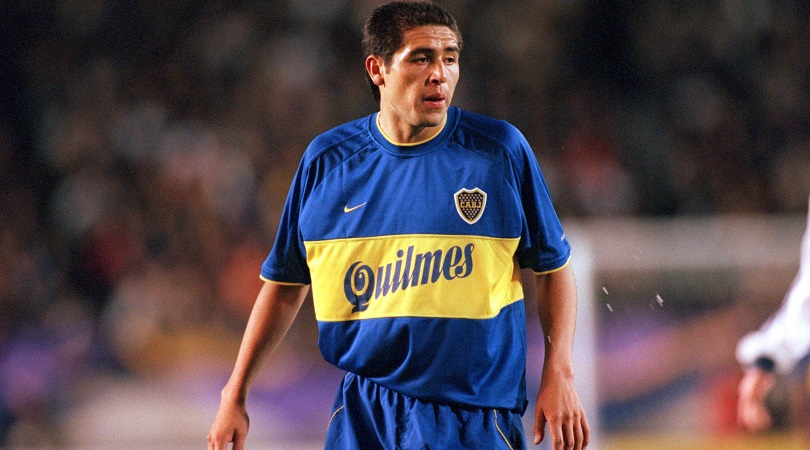
Juan Román Riquelme
The essence of Riquelme was always more opaque than that of Roberto Baggio, Rivaldo or Zinedine Zidane. To this day, he retains a rather cultish appeal and there are still those who insist that, at the peak of his powers, he was the finest player in South America.
His greatness lay in his mood; he played with a calm method and slow feet at a time when dazzlingly quick dribbling and flashing step-overs were becoming the hallmark of the elite.
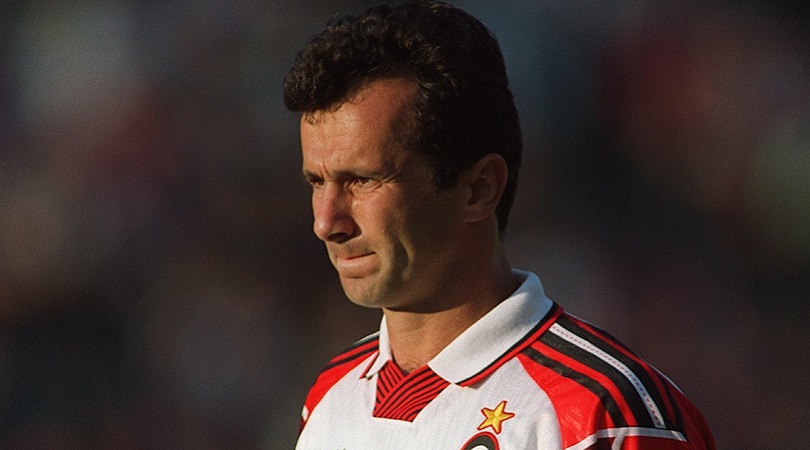
Dejan Savićević
Gifted left-footed players weren't rare in England in the 1990s, but they typically had flaws: their expression would come at the cost of consistency, or vice versa. As successful as Savićević's time in Milan was, it's natural to wonder whether Fabio Capello subdued his creative spirit and, consequently, to imagine how he might have glowed in a more offensive league under a less guarded tactician.
Adding him to Kevin Keegan's Newcastle team, for instance, would likely have created a spectacular multiplying effect and impact on English football which would still survive to this day.
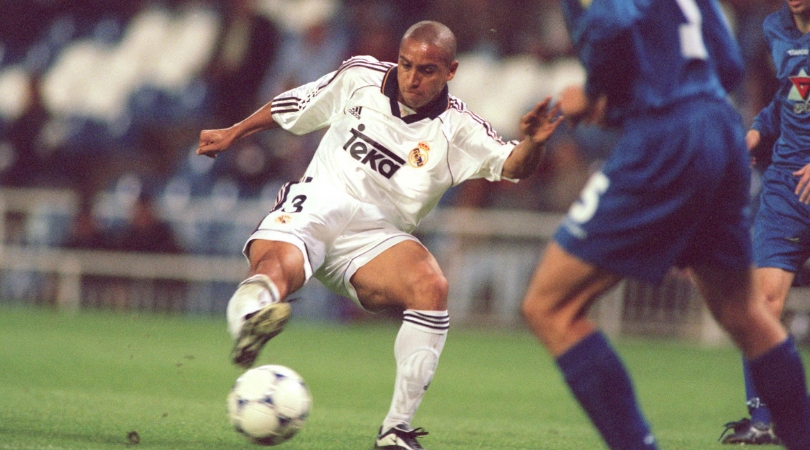
Roberto Carlos
Another attack-minded Brazilian full-back, Roberto Carlos remains one of the most electrifying exponents of his role to ever to play the game.
Sensational free-kicks, incredible speed, pinpoint crosses and Rory Delap-esque long throws would have ensured he thrived in English football – if he'd ever made the move.
Instead, he’ll have to settle with the four Liga titles and three Champions League winners’ medals that he collected over 11 years as a Real Madrid ‘Galactico’...
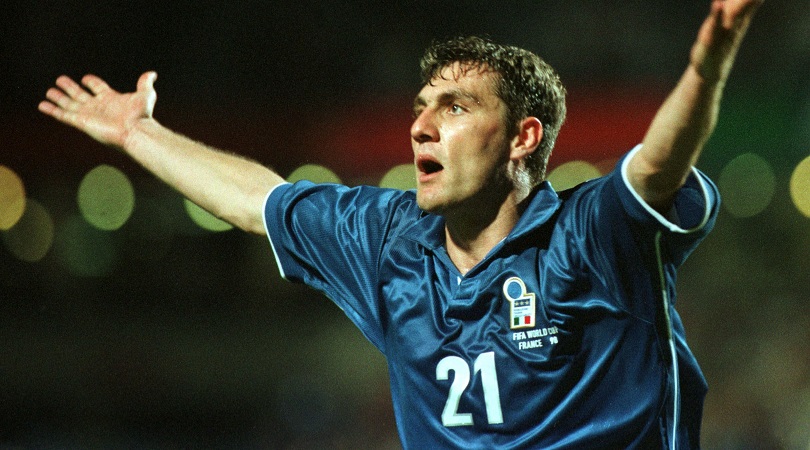
Christian Vieri
The Italian was polarising in this country for a long time, probably because he was prone to looking quite clumsy. He wasn't, but his big body and slightly ungainly running style gave that impression.
As well as he may have used those physical gifts, Vieri wasn't entirely reliant upon them and, actually, many of his goals involved deft touches, craft and imagination. He could probably have been described as both an old-fashioned targetman and as an ultra-modern complete forward; the chances are that a 28-year-old Vieri would have been highly effective in any era – and particularly so in England.
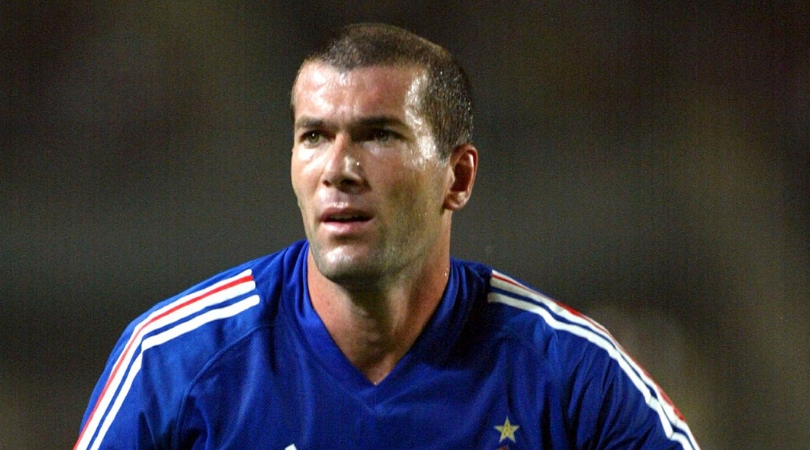
Zinedine Zidane
Zidane needs no introduction. One of the game’s true legends, the Frenchman inspired his country to World Cup glory in 1998 and enjoyed similar success at club level.
He shot to global fame at Juventus, where he won two Serie A titles, before cementing his place among the all-time greats with one of the best goals the Champions League has ever seen as Real Madrid defeated Bayer Leverkusen at Hampden Park in 2002.
There is little doubt the iconic number 10 would’ve torn up the Premier League after succeeding in France, Italy and Spain. Sadly, we'll never know for sure.
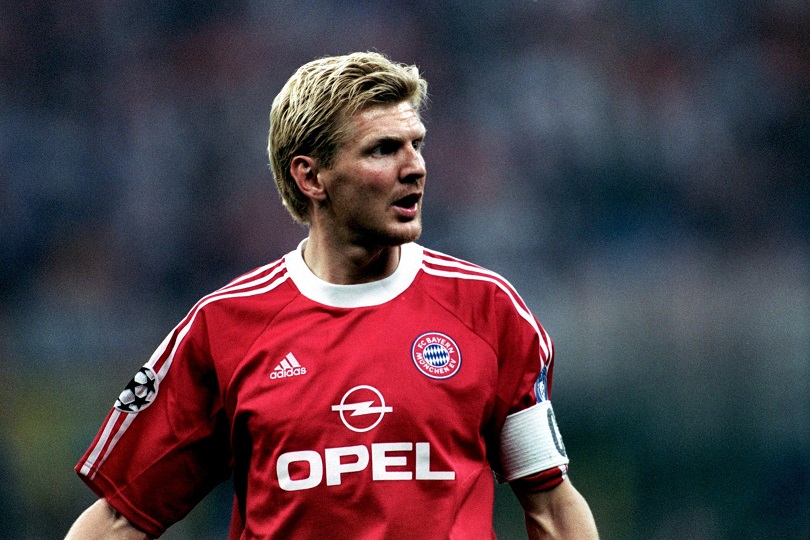
Stefan Effenberg
As a pure footballer, Effenberg was glorious. Equipped with a passing range to die for, he recognised attacking opportunity quicker than anybody on the pitch and moved the ball with such elaborate class.
He didn't age particularly well and, as time wore on, sightings of him bursting forward with that leggy stride grew few and far between. But a young Effenberg playing in the mid-1990s Premier League? Take all the best elements of Paul Scholes, Steven Gerrard, and David Beckham and that, perhaps, is what it might have looked like.
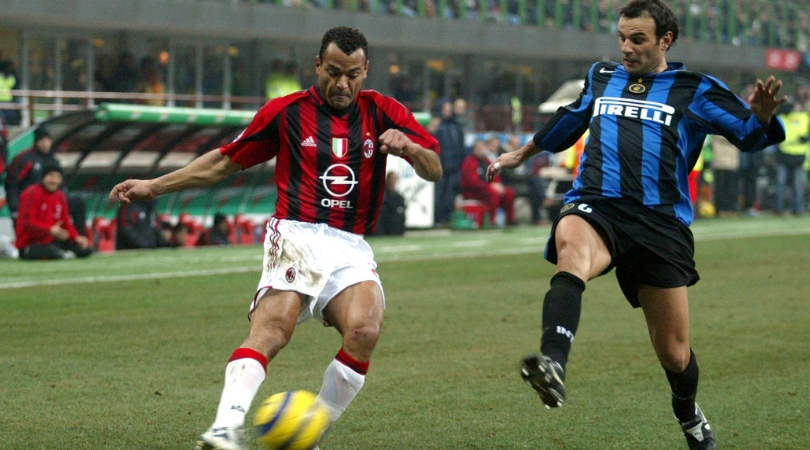
Cafu
It’s hard to imagine that Cafu wouldn’t have thrived in the cut-and-thrust world of the Premier League.
Nicknamed ‘Pendolino’ after Italy’s express train, the Brazilian’s characteristic bombing runs up the right wing made him a formidable attacking threat as he won two Serie A titles and the Champions League during his spells at Roma and AC Milan.
He also left his mark at international level, winning two World Cups with Brazil and becoming the most-capped player in his country’s history.
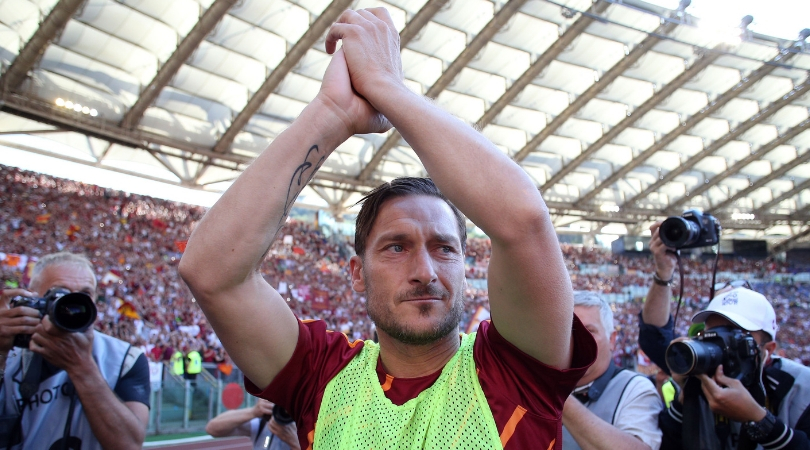
Francesco Totti
The name is so inseparable from one club that it's very difficult to picture Totti in the shirt of any English side.
The Roma great spent his entire career with his childhood club and, while he helped them win only the third league title of their history in 2000/01, it's tempting to wonder what he could’ve achieved in the club game if he had ever left the Italian capital.
We will never know, but Giallorossi fans won’t be complaining. Totti retired to much fanfare in 2017 as the club’s all-time top goalscorer and record appearance holder.
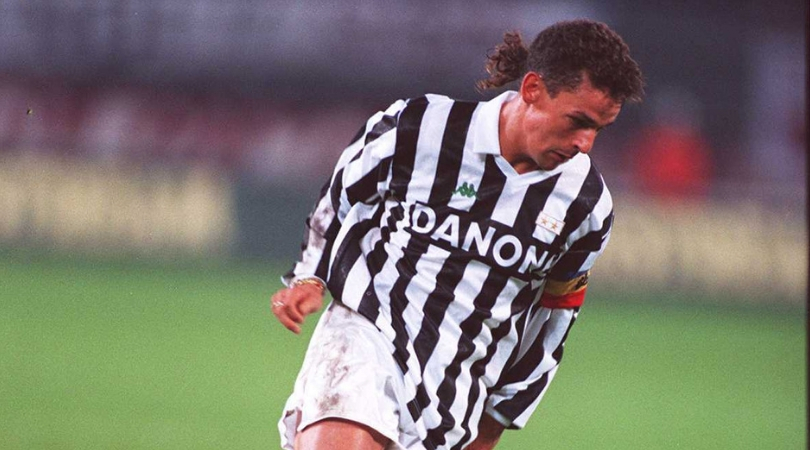
Roberto Baggio
Baggio was one of the most gifted footballers to grace Serie A pitches during a stellar era for the Italian top flight.
Known as the ‘Divine Ponytail’ because of his iconic hairdo and Buddhist beliefs, his talent was such that a move from Fiorentina to Juventus in 1990 sparked riots on the streets of Florence.
A Ballon d’Or winner in 1993, it's strange that the forward’s trophy cabinet contained just two Serie A winners’ medals – one for Juventus and the other with AC Milan – by the time he retired in 2004. Sadder still is the fact that many will recall him most vividly for his cruel penalty miss in the 1994 World Cup Final; a tournament the Italian had otherwise lit up with a string of sensational performances.
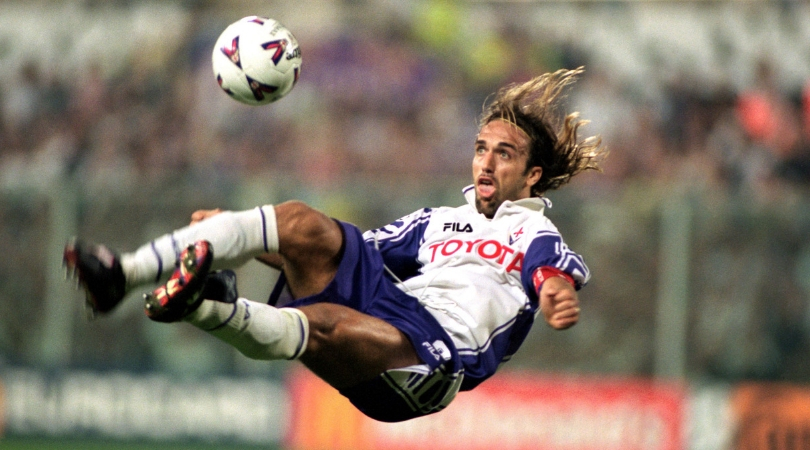
Gabriel Batistuta
Another iconic figure of the Serie A glory days, Batigol’s explosive finishing and machine-gun celebration are still fresh in the memory of Fiorentina fans in particular. The Argentine became a club legend in Florence, but it was with Roma in 2000 where he picked up a Serie A winners’ medal.
He’s the only player to have scored a hat-trick in two different World Cups as he excelled at international level, being Argentina’s record goalscorer until a certain Lionel Messi came along.
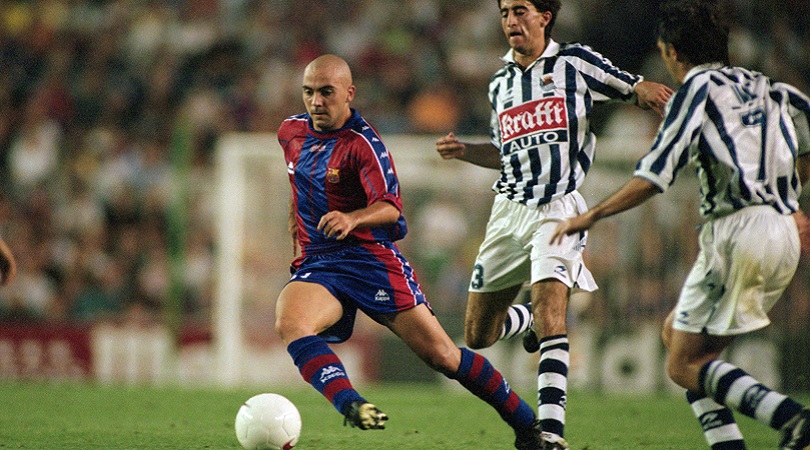
Iván de la Peña
De la Peña wasn't a great athlete and neither did he seem particularly weighed down by defensive responsibility. That he fell out with Johan Cruyff and Louis van Gaal at Barcelona is partly illustrative of that, as ultimately was his career's subsequent trajectory. He was unfulfilled promise and there's really no way of denying that.
However, if he was to have played in 2018, at a time when appreciation for line-cutting distribution is arguably at its apex, far greater focus would be placed on what he could do instead of what he couldn't. And he could pass a football like nobody else: with touch, with disguise, over defences and through them.
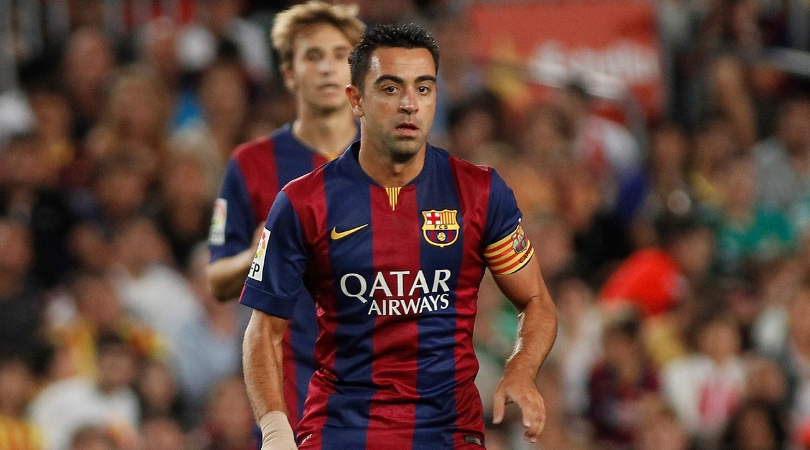
Xavi
One of the greatest midfielders of his generation and arguably one of the finest the world has ever seen, Xavi turned down the chance to join Manchester United during the Sir Alex Ferguson era despite his appreciation for the English game.
“To be honest, the Premier League is a big attraction for any player,” he told the Guardian after leaving Barcelona in October 2015. “It’s brilliant - the stadiums, the pitches, the fans and how they live football over there – it’s all incredible.”
The 38-year-old’s playing days are not quite over yet, as he sees out his career with Al-Sadd in Qatar, but the chance of witnessing his effortless controlling of the midfield in Premier League grounds has long since passed.
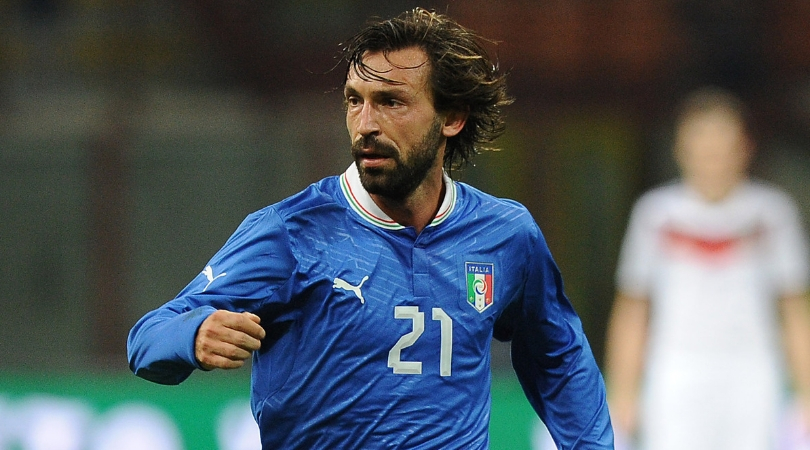
Andrea Pirlo
The man just oozes class. Ever since his dinked ‘panenka’ penalty against Joe Hart at Euro 2012, there has been a fascination with the Italian on English shores.
His divine first touch, instinctive distribution and legendary dead-ball abilities made him one of Europe’s finest playmakers in the modern era. There are still those who question how he would have coped with the pace and physicality of the Premier League, but it would’ve been unlikely to faze Pirlo.
After all, we're talking about the man who said: "I don’t feel pressure, I don’t give a toss about it. I spent the afternoon of 9 July 2006 in Berlin sleeping and playing the PlayStation. In the evening, I went out and won the World Cup."
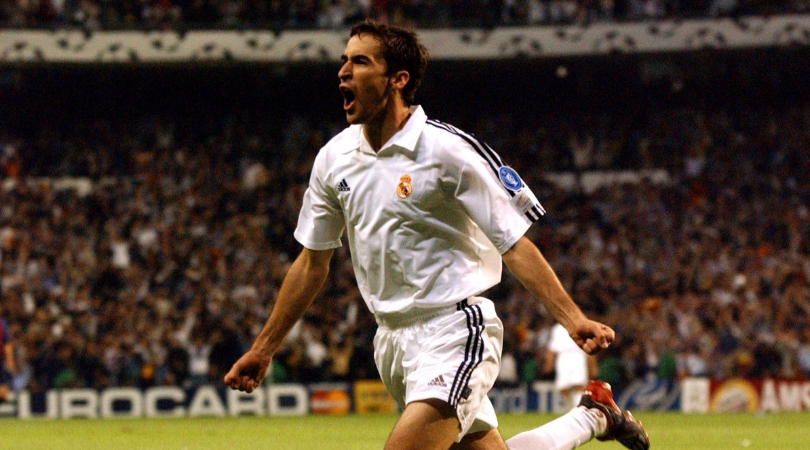
Raul
One of the greatest players in the history of Real Madrid, Raul scored an incredible 325 goals during 16 years at the Bernabeu.
He remains the club’s record appearance holder with 741 games under his belt in the famous white shirt, while only Cristiano Ronaldo has found the net more times than the Spanish great for the club.
It was Bundesliga fans who profited from his Madrid departure in 2010 as Raul spent two successful seasons with Schalke 04, before wrapping up his career in Qatar and MLS. We're left to wonder how lethal he could have been in English football.
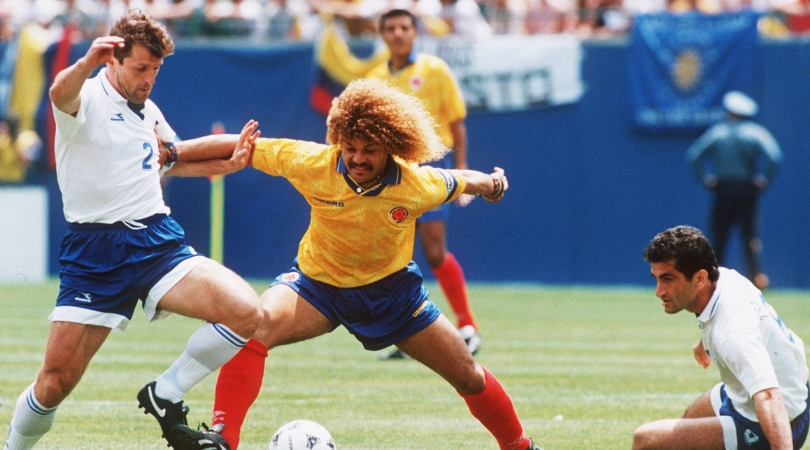
Carlos Valderrama
His name conjures only one image: that hair. Valderrama’s enormous blond mop helped him become a cult hero with Colombia, but it was what he did with his feet that was more important.
Regarded as one of the greatest players his country has ever produced, the playmaker was named South American player of the year three times and memorably helped Colombia to the last 16 at Italia ’90.
Only four years of his club career were spent in Europe, between Montpellier and Real Valladolid, and more’s the pity for those of us who would have loved to see El Pibe test himself on English shores.
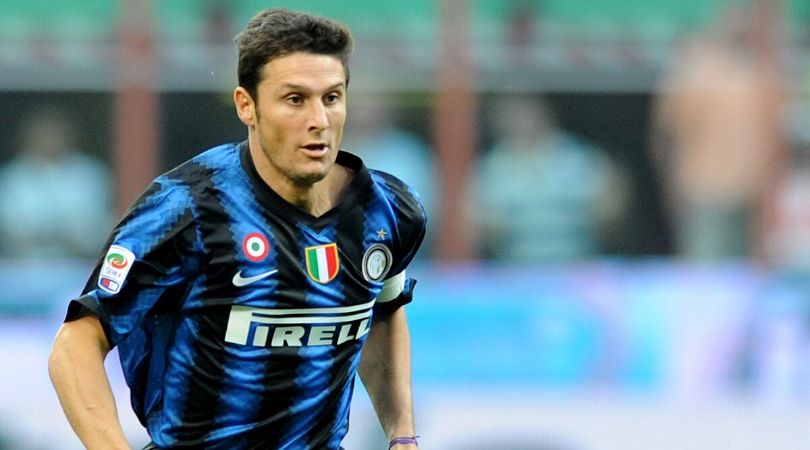
Javier Zanetti
Zanetti wasn't a one-club man - the Argentinian played for in his homeland before moving to Italy - but he's indelibly associated with Inter. He spent almost two decades at San Siro as a player, winning seven major honours (three of them in 2009/10) along the way.
A versatile performer who could play in midfield or at right-back, Zanetti would have endeared himself to English audiences with his professionalism and work ethic.

Fabio Cannavaro
Had he come through an English academy in the early 1990s, Cannavaro’s dream of making it as a top-class centre-back would have been over before it began. Yet despite standing at just 5ft 9in, the Italian maestro went on to become one of the world’s foremost central defenders, representing Napoli, Parma, Inter, Juventus, Real Madrid and Italy with distinction.
English fans would have loved his bravery, commitment and leadership, but Cannavaro was also intelligent, technically sound and a superb reader of the game.
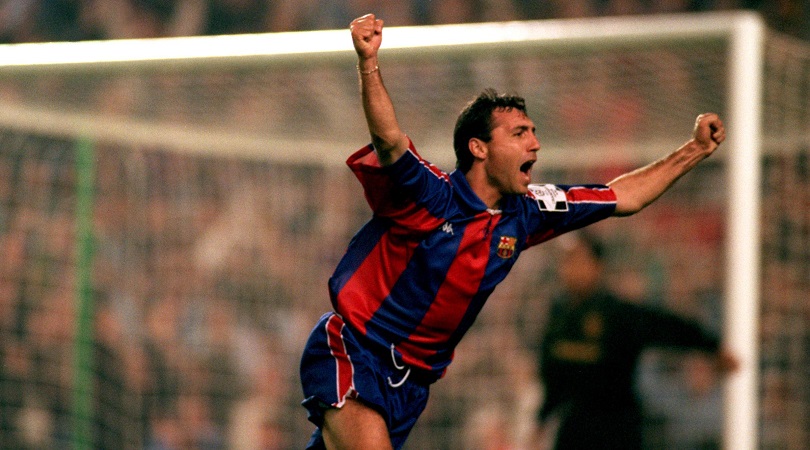
Hristo Stoichkov
Describing Stoichkov as temperamental would be an understatement. The moody Bulgarian certainly wasn’t shy in making his feelings known, but his stupendous natural ability more than made up for his occasional outbursts.
An inventive and tenacious forward, Stoichkov was capable of playing up top or in a more withdrawn role. He was superb at Barcelona in the early 1990s, and it would have been fascinating to see him rival Eric Cantona in the Premier League.
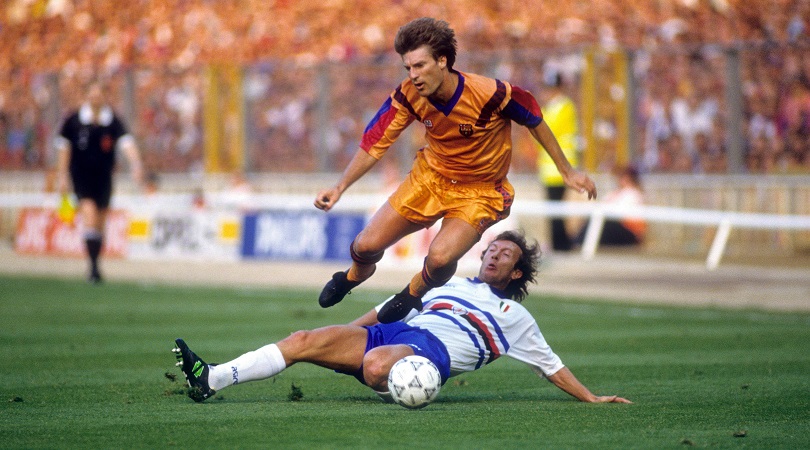
Michael Laudrup
Never has there been a player who let the ball do so much work. Laudrup eventually came to the Premier League in 2012 to take charge of Swansea, but he’d been retired for 14 years by that point.
His best years probably came pre-1992 with Juventus and Barcelona, but the Dane was someone who relied much more on technical gifts than physical ones and would surely have relished the relatively open midfields in England’s top flight. A pinpoint passer, Laudrup was arguably the most elegant player of his generation.
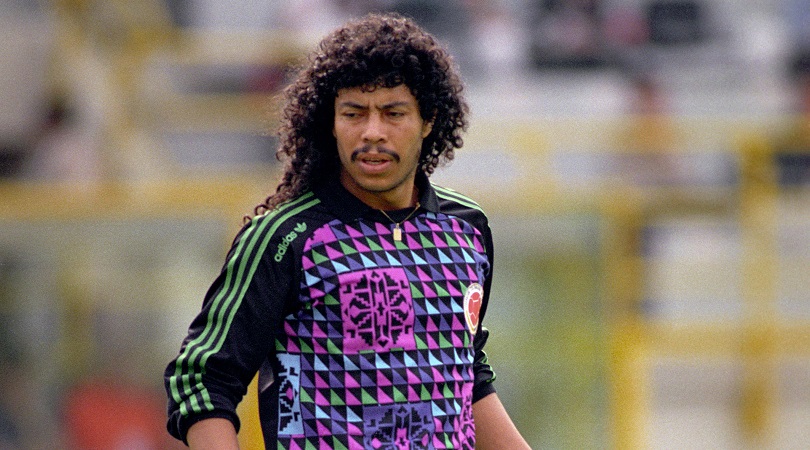
Rene Higuita
One of Higuita's most famous moments came on English soil, when he performed a scorpion kick for Colombia at Wembley in 1995. The linesman may have already raised his flag but it was an incident which summed up the maverick goalkeeper's audacious approach, which was also evidenced in a series of extraordinary dribbles throughout his career - the most famous of which ended up with Roger Milla nicking the ball and scoring for Cameroon at Italia 90.
Higuita was a born entertainer, and it would have been brilliant to see him strut his stuff in a Premier League penalty area in the 1990s - not least to witness the reaction of old-school British pundits as he looked to start attacks and carry the ball upfield.
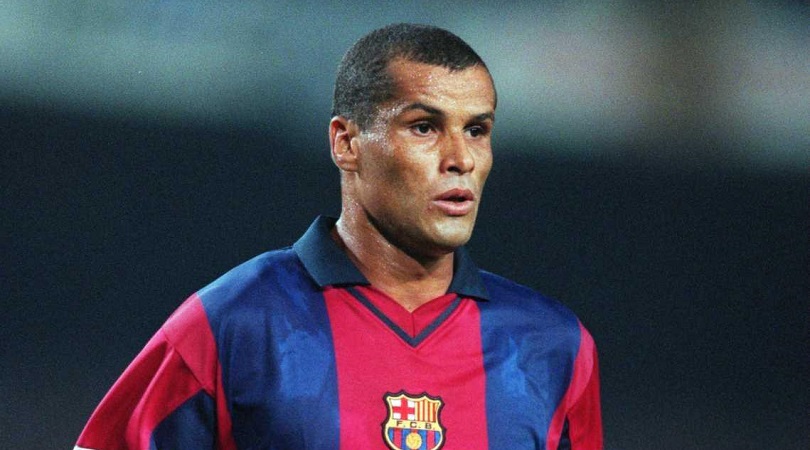
Rivaldo
A quick glance at the number of clubs Rivaldo represented during his playing career would give the impression of a bog-standard Brazilian journeyman. For a while, though, the left-footed attacking midfielder was the planet's best player, a supremely graceful attacker who could both create and convert chances.
He was at his best with Barcelona in the late 1990s and early 2000s, despite Louis van Gaal's attempts to make him conform to his ideas about team shape and defensive positioning. A truly glorious footballer, Rivaldo had the talent to thrive in any era and in any country, so it's a shame he never made it to the Premier League.
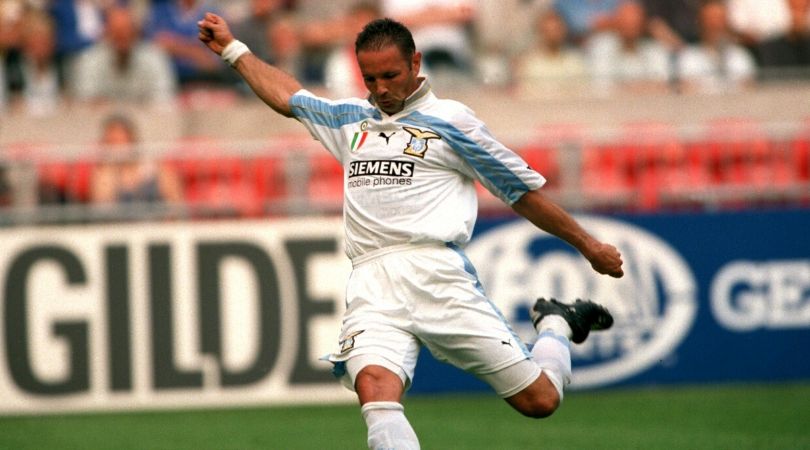
Sinisa Mihajlovic
A tough-tackling defender possessing one of the deadliest left foots in the game, Mihajlovic was always worth a watch – particularly when standing over a dead ball.
Mihajlovic shares the Serie A record for the most free-kick goals with Andrea Pirlo on 28, and even famously scored a hat-trick of them for Lazio in a 1998 meeting with Sampdoria. Who wouldn’t want to see that?
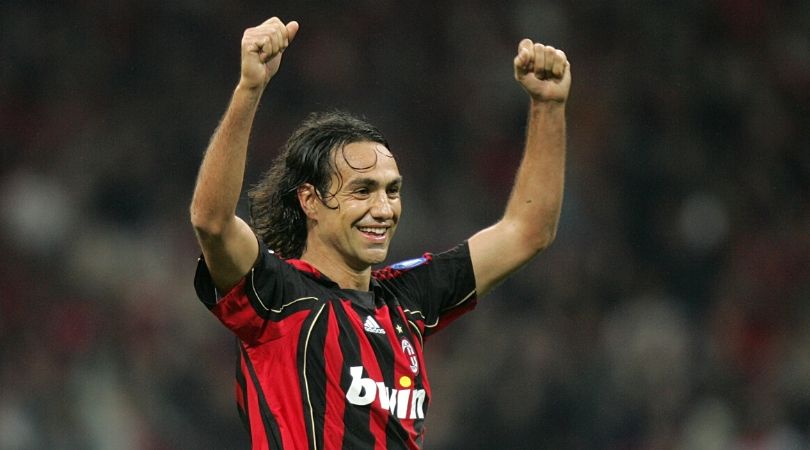
Alessandro Nesta
Not only was Nesta one of the greatest defenders ever to play the game, he was also one of the most watchable.
Watching the former Lazio and AC Milan legend at his peak, perfectly timing a slide tackle or interception, could be as satisfying as seeing the ball fly into the top corner. He was simply that good.
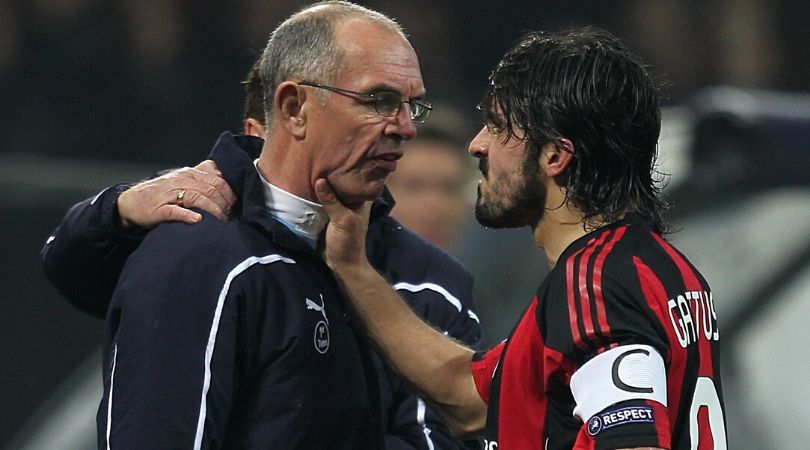
Gennaro Gattuso
When Gattuso squared up to Joe Jordan in 2011, many British viewers suggested that the Milan midfielder mustn't have been aware of the Scot's hardman reputation. But even if he was, the fiery Italian pitbull would still have had a pop.
A tough-tackling, heart-on-your-sleeve midfielder, Gattuso was exactly the type of player that English fans tend to love - as long as he's on your team.
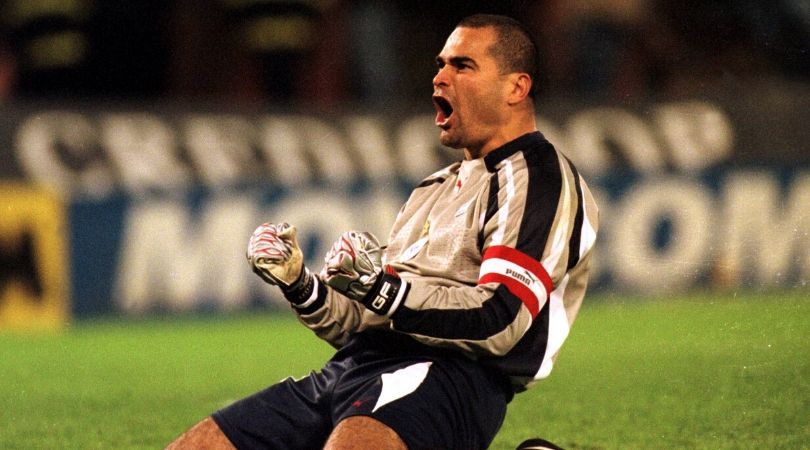
Jose Luis Chilavert
Who wouldn’t want to see a goalkeeper curling free-kicks into the top corner in the Premier League?
Fans of 1990s football will remember the Paraguayan fondly. He had a couple of spells in Europe, with Real Zaragoza in Spain and Strasbourg in France, but scored only one goal in that time. At Velez Sarsfield in Argentina he was far more prolific, netting 78 goals while sporting gloves, including a hat-trick from the penalty spot.
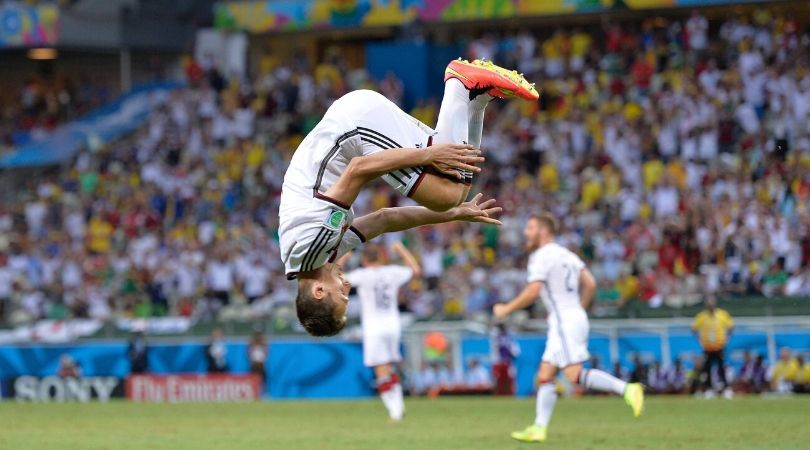
Miroslav Klose
A goal machine for Werder Bremen, Bayern Munich and Germany, Klose then proved he could do it outside of his home country during a superb spell with Lazio at the end of his career.
Klose is the all-time top scorer for Germany and at the World Cup – it would’ve been interesting to see how he fared in England.
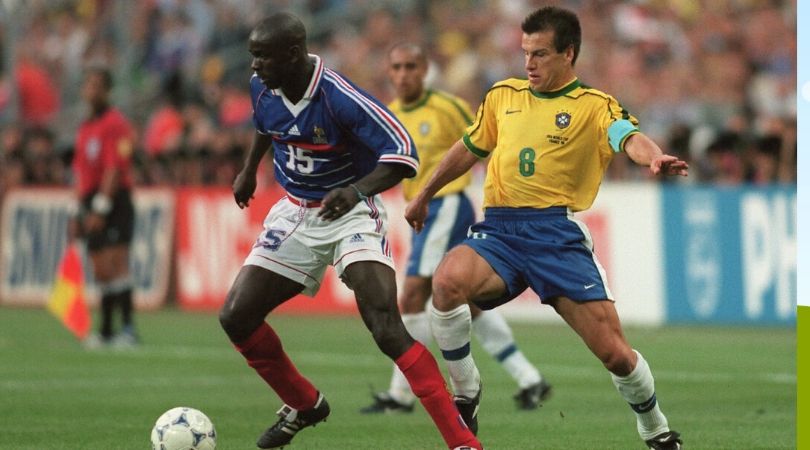
Lilian Thuram
A World Cup and European Championship winner with France, Thuram also picked up plenty of silverware at club level during spells with Monaco, Parma, Juventus and Barcelona.
A quick, aggressive and powerful defender capable of playing at right-back or centre-back, it’s tempting to think he would’ve thrived in the Premier League arena.
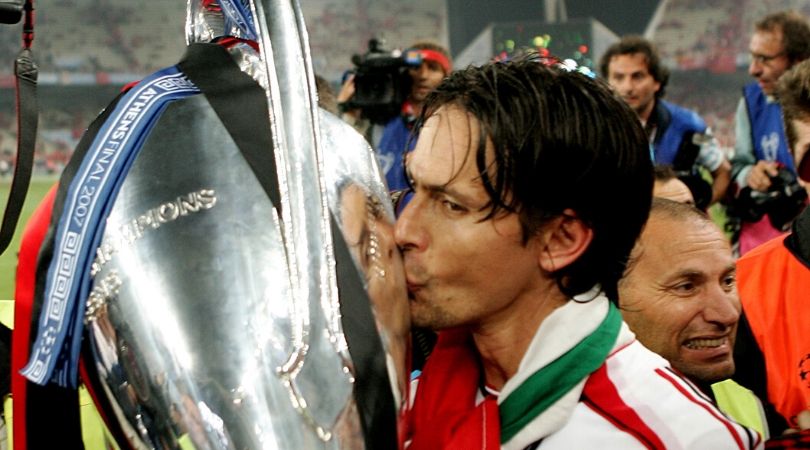
Filippo Inzaghi
One of the game’s greatest poachers, Inzaghi’s goal return was spectacular – as was the number of offside calls against him. Indeed, Fergie famously quipped once that he was “born offside”.
But few knew where the net was as well as Pippo. By the time he hung up his boots, he had scored 313 goals in Italy and 70 in European competitions. Very few have done better.
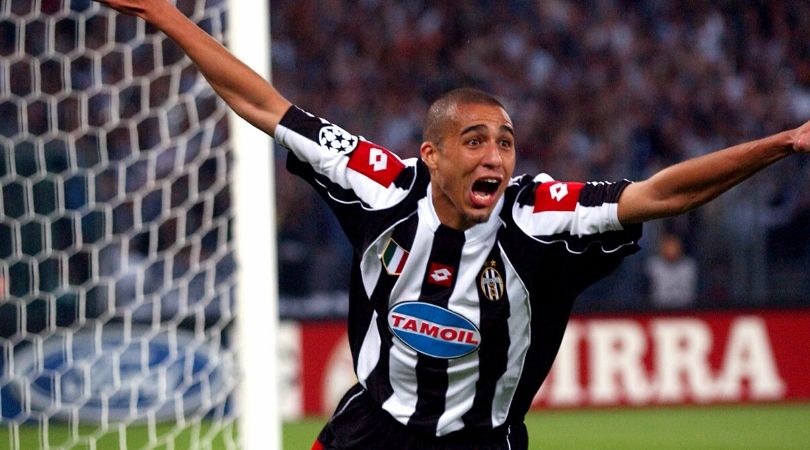
David Trezeguet
A prolific marksman with a powerful shot, Trezeguet’s howitzer of a strike for Monaco against Manchester United in 1998 was clocked at 97.6mph – the fastest shot ever recorded in the Champions League.
The Frenchman’s best years were spent in Turin at Juventus, and he even stayed with the club when they were relegated in 2006 after the Calciopoli match-fixing scandal.
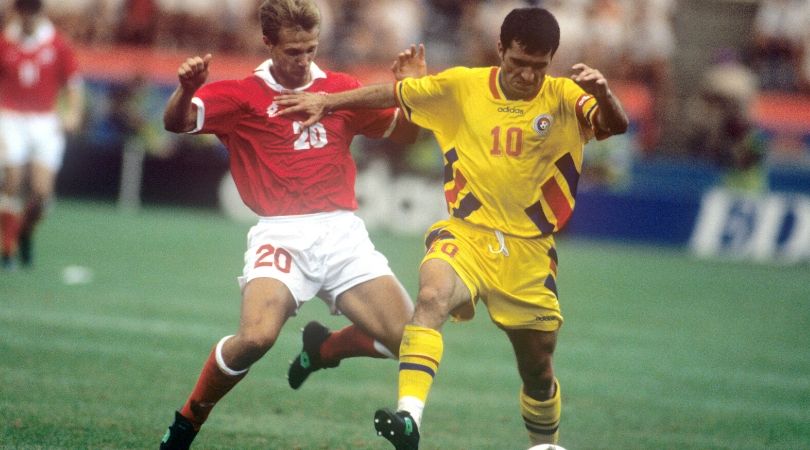
Gheorghe Hagi
The ‘Maradona of the Carpathians’ possessed a level of talent few footballers have ever matched. It took him to both sides of the El Clasico divide, Real Madrid and Barcelona, as well as to Italy with Brescia and Turkey with Galatasaray – but never to England.
“We were team-mates at Galatasaray in 1996, and he was one of the best left-footed players of all time,” Brad Friedel told FourFourTwo in May 2018. “Gheorghe’s technique was just amazing, especially striking the ball. He could see three pictures ahead of anybody else on the pitch – a true general on the field.”
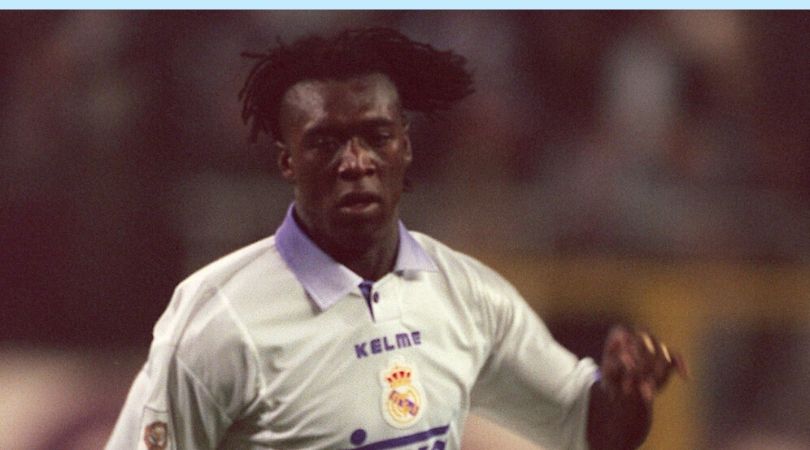
Clarence Seedorf
It’s no coincidence that Seedorf is the only player to have won the Champions League with three different clubs: Ajax, Real Madrid and AC Milan.
It’s a shame, considering his cross-continental career, that the classy, composed Dutchman never stepped foot on English shores.
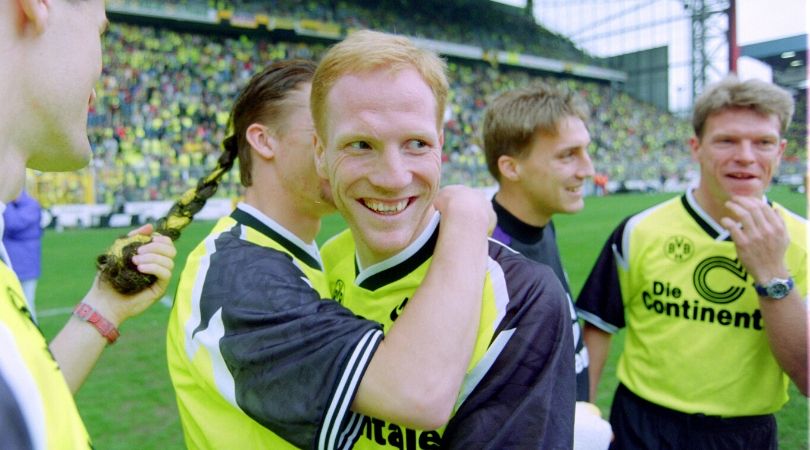
Matthias Sammer
During a two-year spell in the 1990s, Sammer was untouchable. He was named Player of the Tournament at Euro ’96 after some dazzling displays in a libero role helped Germany to the title.
Just a year later, he was skippering Borussia Dortmund to Champions League glory.
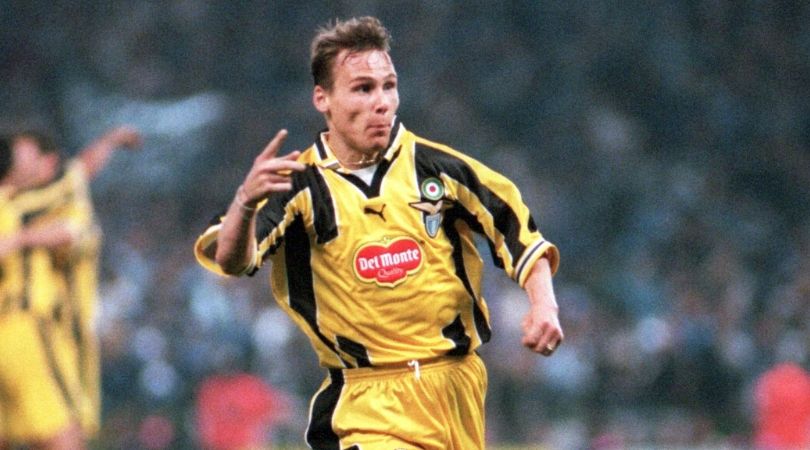
Pavel Nedved
One of the greatest players of his generation, Nedved’s eye-catching blond locks made him hard to miss as he glided across the pitch.
A superb passer of the ball and a constant goal threat, the Czech midfielder helped his country to the final of Euro ’96 and Lazio to only their second Serie A title, before winning the Ballon d’Or in 2003 during his spell with Juventus.
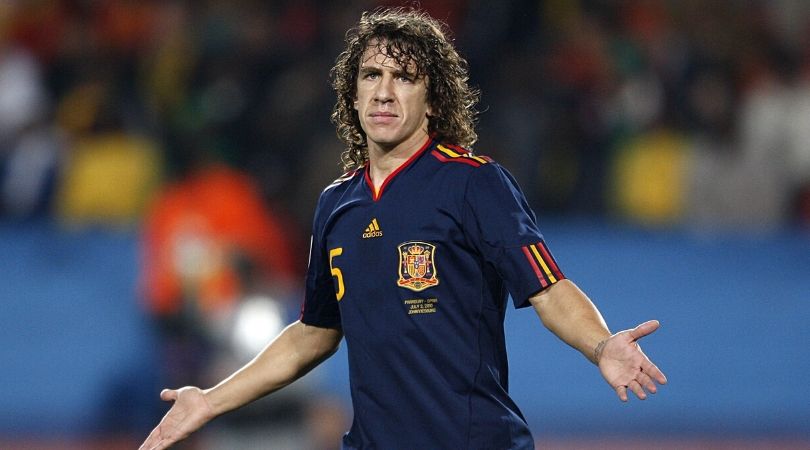
Carles Puyol
Puyol spent his entire career at Barcelona, where he won six La Liga titles and three Champions Leagues. Xavi Hernandez, Andres Iniesta and Lionel Messi may have been the architects of tiki-taka, but Puyol - a rugged and aggressive centre-back - was also crucial to the success of Pep Guardiola's team.
Not the tallest at 5ft 10in, Puyol would no doubt have succeeded in the Premier League thanks to his physicality, attitude and all-round quality.
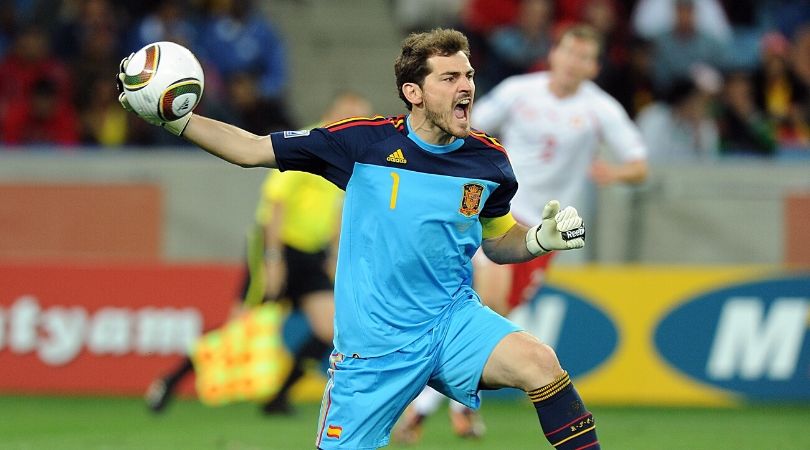
Iker Casillas
Casillas called time on a remarkable career earlier this year. The 39-year-old had been a fixture of top-level European football since 1999, winning silverware galore at Real Madrid and Porto.
Manchester City and Manchester United were linked with Casillas in 2009, but the Spaniard didn't want to leave boyhood club Madrid. He would have been a brilliant addition to the English game.
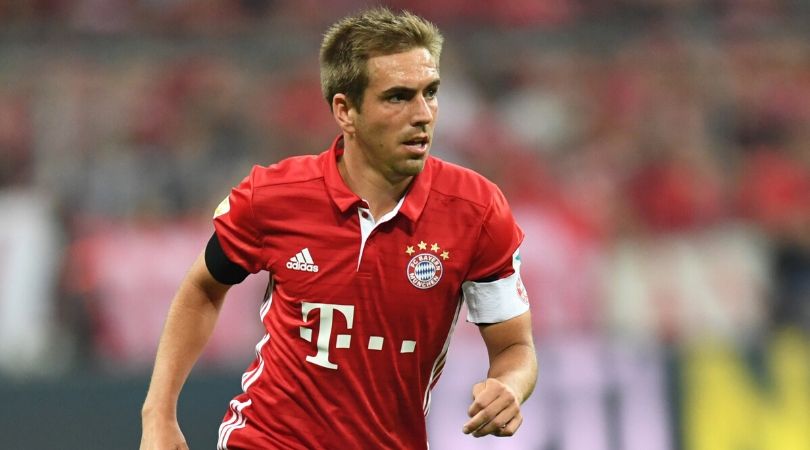
Phillip Lahm
Labelled by Pep Guardiola as the most intelligent footballer he's ever coached, Lahm is one of the greatest full-backs of modern times. Able to play on the right or left side of the defence, he even excelled in Bayern Munich's midfield under Guardiola.
Lahm was simply a world-class footballer who could probably have done a job anywhere on the pitch. It's a shame that Premier League fans never got the chance to see him up close and personal.
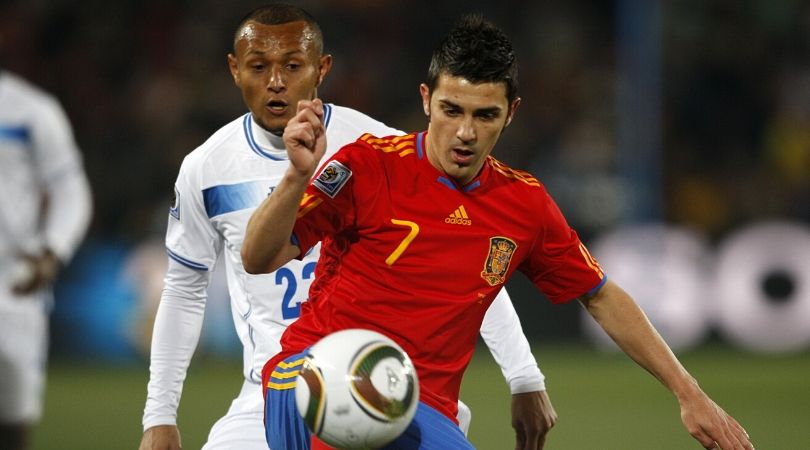
David Villa
After turning out for Sporting Gijon, Zaragoza, Valencia, Barcelona and Atletico Madrid, Villa left La Liga in 2014. Unfortunately, it was MLS not the Premier League that was his destination.
The brilliant forward, who won three La Liga titles and the Champions League during his time in Spain, would no doubt have wreaked havoc in English football too.
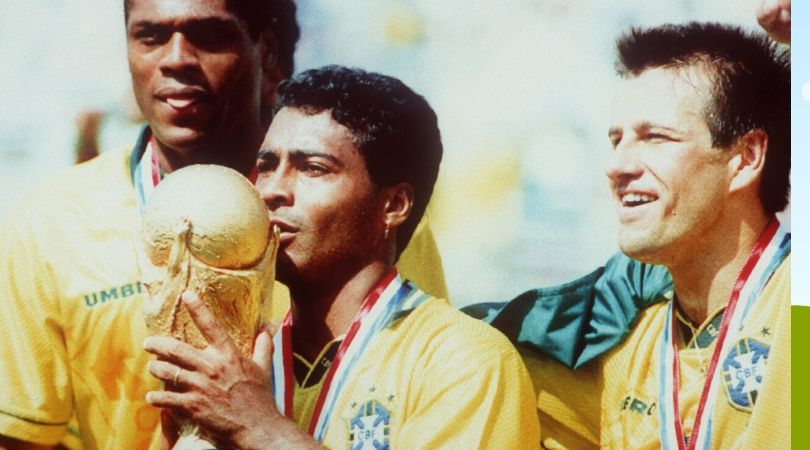
Romario
What a finisher. When Romario went through one-on-one, you were almost certain that the ball would end up in the back of the net. The method was a little harder to predict, with the Brazilian marksman possessing a range of different finishes in his locker.
A temperamental genius, Romario scored goals and caused arguments in the Eredivisie and La Liga but regrettably never made it to the Premier League.
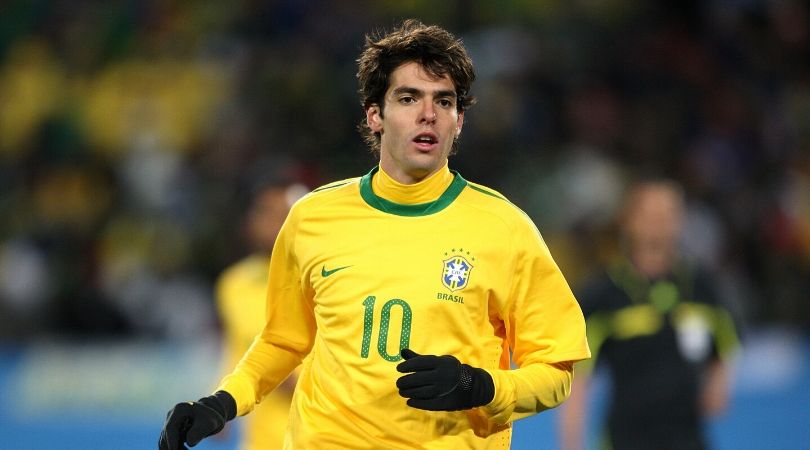
Kaka
One of the greatest performances of Kaka's career came at Old Trafford, but that was an all-too-rare appearance on English soil.
The Brazilian attacking midfielder was simply too good for Manchester United in that Champions League tie in 2007. He later came close to joining Manchester City, only for Milan to pull out of the deal late on.
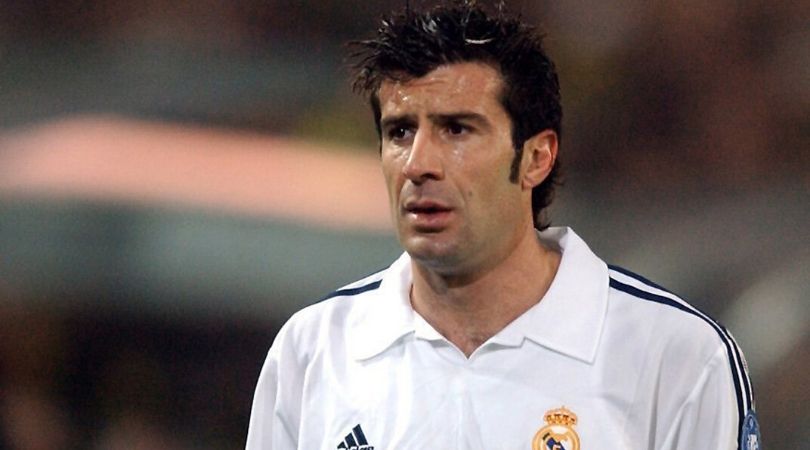
Luis Figo
Figo spent most of his career in La Liga, spending five years each at Barcelona and Real Madrid - a feat that not too many players manage.
The Portuguese winger, who later won four Serie A titles with Inter, was unplayable on his day. A skilful dribbler, Figo combined natural ability with intelligence that made him one of the best players in Europe for several years. Sadly, he never made it to the Premier League.
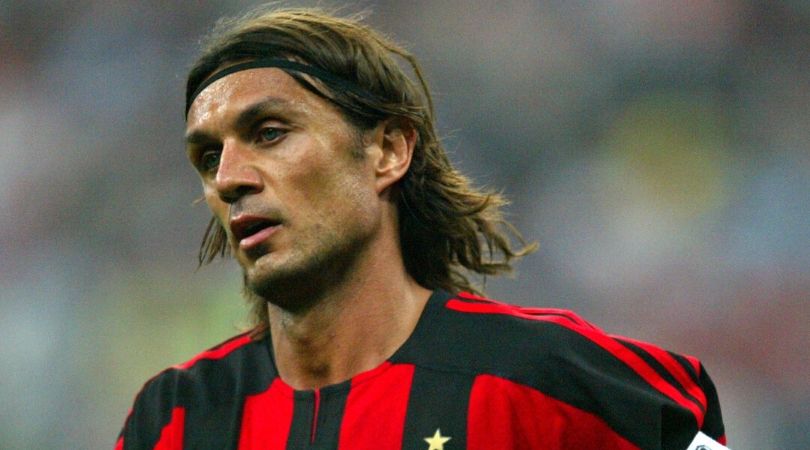
Paolo Maldini
What more can you say about Maldini? Whether he was employed at left-back or centre-back, the Milan legend was a solid, reliable and unflappable presence in defence.
The Italian spent his entire career with the Rossoneri, debuting in 1985 and eventually bowing out in 2009. One of the greatest defenders of all time, Maldini would have shone wherever he played.
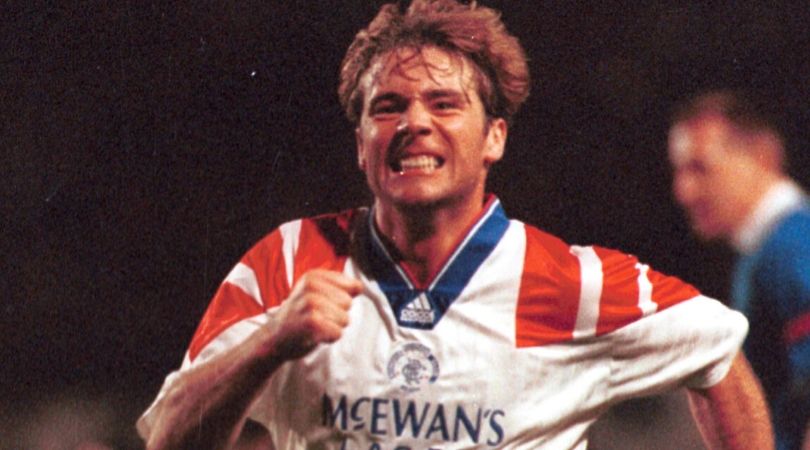
Ally McCoist
Given the disparity between the two leagues today, a player of McCoist's talent would surely have swapped the Scottish top flight for its English equivalent at the peak of his career.
Yet the striker remained north of the border in his prime years, albeit after a two-year spell with Sunderland in the 1980s. McCoist established himself as a Rangers legend the following decade, scoring a record 355 goals and winning 10 league titles with the club.
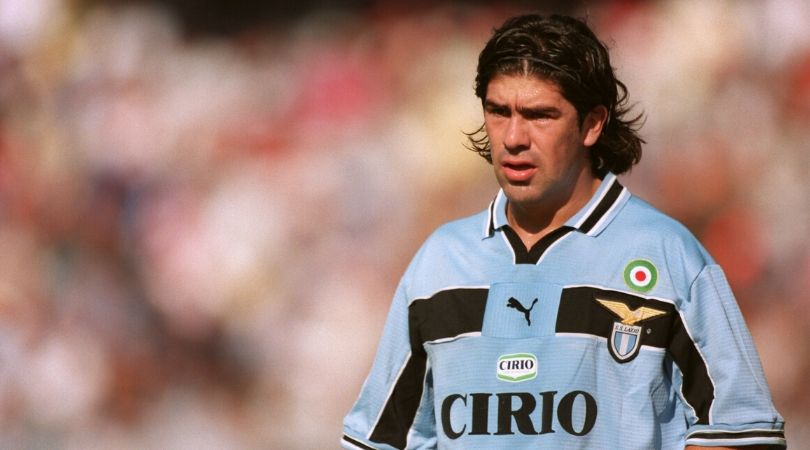
Marcelo Salas
Salas' scoring record was superb wherever he went. After three brilliant years with Universidad de Chile, the striker shone in Argentina with River Plate, then crossed the Atlantic to join Lazio in 1998.
As is often the case in Italian football, Salas' initial exploits in Serie A earned him a move to Juventus, after which he returned to South America. Fans in England had to be content with occasional glimpses of the Chilean in European competition.
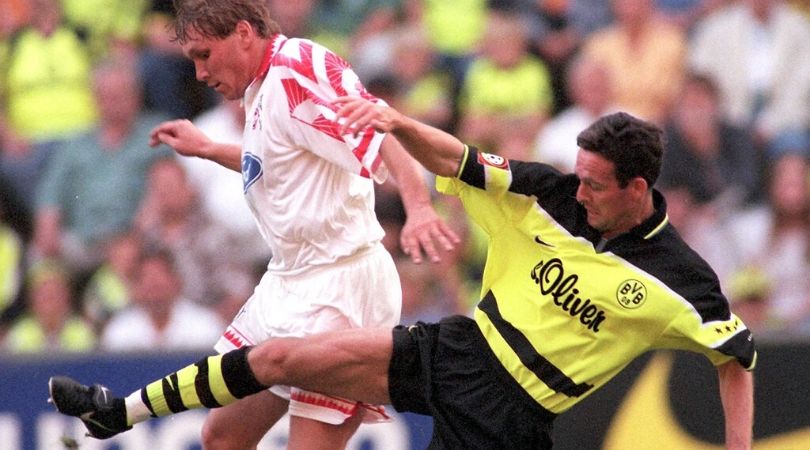
Paul Lambert
Several British players spent time abroad in the 1990s, including Chris Waddle at Marseille, Paul Gascoigne at Lazio, Paul Ince at Inter and Steve McManaman at Real Madrid.
Lambert - a Scot rather than an Englishman - turned out for Borussia Dortmund in the second half of the decade, but he did so having never played in the Premier League. He probably has few regrets: the midfielder won the Champions League at Westfalenstadion, followed by four league titles with Celtic.
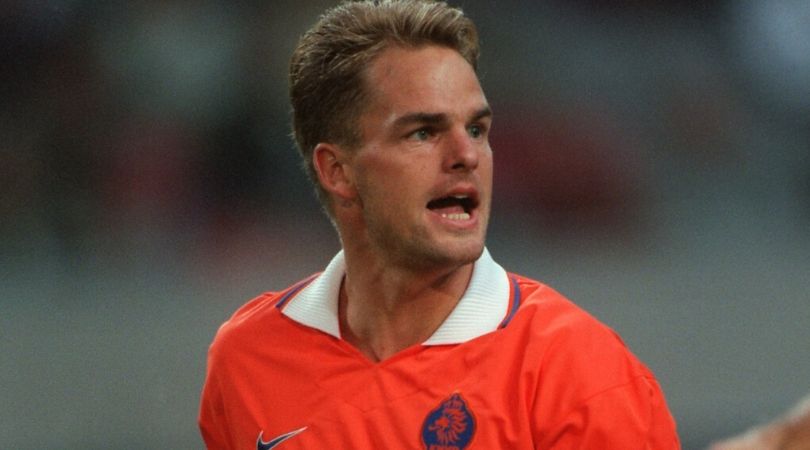
Frank de Boer
De Boer did eventually end up in the Premier League but his tenure as Crystal Palace manager lasted for just four games.
The jury is still out on the Dutchman as a coach, but there can be no doubting his credentials as a player. The defender enjoyed a fine career with Ajax and Barcelona, and later played 17 games for Rangers alongside brother Ronald.
Greg Lea is a freelance football journalist who's filled in wherever FourFourTwo needs him since 2014. He became a Crystal Palace fan after watching a 1-0 loss to Port Vale in 1998, and once got on the scoresheet in a primary school game against Wilfried Zaha's Whitehorse Manor (an own goal in an 8-0 defeat).
 Join The Club
Join The Club











